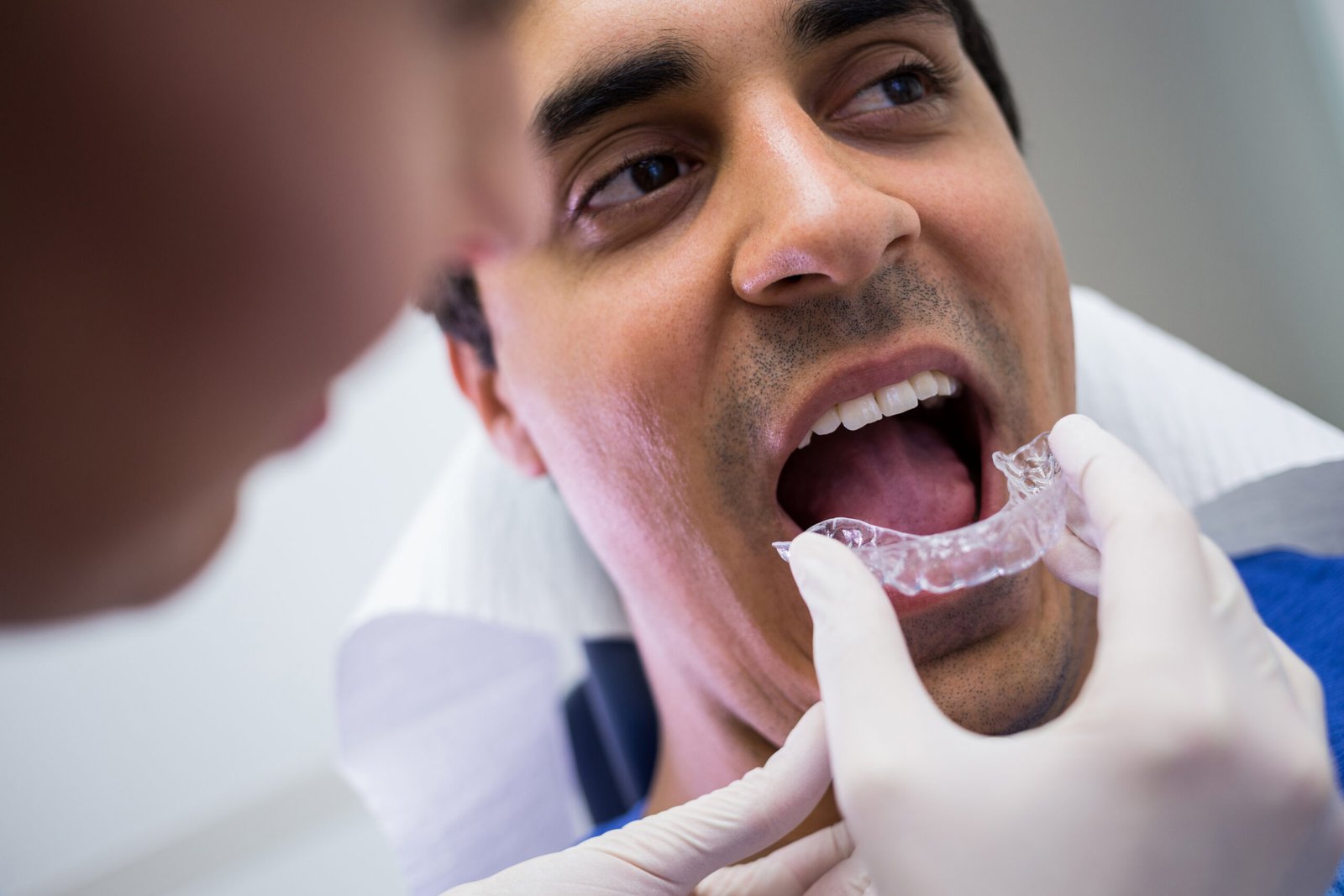Bruxism, or teeth grinding, is a common condition affecting millions of people worldwide. It often occurs unconsciously while sleeping, leading to headaches, jaw pain, and damaged teeth. Left untreated, bruxism can lead to long-term dental issues, including tooth wear and cracked teeth. Fortunately, modern treatments for bruxism can help manage and even eliminate the symptoms, allowing you to stop teeth grinding and improve your sleep. In this blog, we’ll explore the latest treatments and how they can reduce pain and enhance your quality of life.
1. Modern Mouthguards for Bruxism Relief
Mouthguards are one of the most common and effective treatments for bruxism. However, today’s mouthguards are far more advanced than ever before, offering better protection and comfort.
Steps to Follow:
- Custom-Fit Mouthguards: Designed by your dentist, these fit perfectly to your teeth, offering maximum protection.
- Boil-and-Bite Mouthguards: More affordable and available over-the-counter, these can be molded to your bite at home.
- Smart Mouthguards: Equipped with sensors to track grinding and help you adjust behaviors.
Pro Tip:
Speak to your dentist about getting a custom-fit mouthguard for optimal protection. This type of mouthguard will provide a higher level of comfort and last longer.
2. Innovative Botox Treatments for Bruxism
Botox, typically associated with cosmetic procedures, has become a highly effective treatment for bruxism. Botox injections work by relaxing the muscles responsible for teeth grinding.
Best Practices:
- Botox injections are safe and target the jaw muscles to reduce grinding.
- Results typically last between three and six months, making it a reliable short-term solution.
- Treatment can also alleviate jaw pain and headaches caused by bruxism.
3. Behavioral Therapy for Bruxism Management
For those seeking a non-invasive approach, behavioral therapy offers long-term benefits in managing bruxism. Learning to relax your jaw and reduce stress can significantly reduce teeth grinding.
Key Tips for Improvement:
- Cognitive Behavioral Therapy (CBT): Helps manage the stress and anxiety that often cause bruxism.
- Biofeedback: This technique trains you to control your muscle movements, reducing unconscious grinding.
- Stress Reduction Techniques: Yoga, meditation, and relaxation exercises help lower the tension that triggers teeth grinding.
4. Nightly Routine Changes to Prevent Bruxism
Making small changes to your nightly routine can help reduce the likelihood of teeth grinding while you sleep. These adjustments are simple and can have a big impact on your oral health.
Helpful Practices:
- Avoid caffeine and alcohol before bed, as they can increase the likelihood of grinding.
- Develop a relaxing bedtime routine, including reading or meditating.
- Consider using a humidifier or white noise machine to promote better sleep quality.
Affordable Care Tips:
- Look for Payment Plans: Many dental clinics offer flexible payment plans to help you spread out the cost of treatments.
- Visit Dental Schools: You can often receive high-quality care at reduced rates from supervised dental students.
- Seek Out Low-Cost Clinics: Community health centers and local clinics may provide affordable bruxism treatments for those on a budget.
It can lead to serious dental issues, but with the latest treatments and some lifestyle adjustments, you can manage or even stop teeth grinding altogether. Whether it’s through modern mouthguards, Botox treatments, or behavioral therapy, there’s a solution that’s right for you. By understanding the options available and consulting a dental professional, you can take the necessary steps to protect your teeth and improve your sleep quality.

